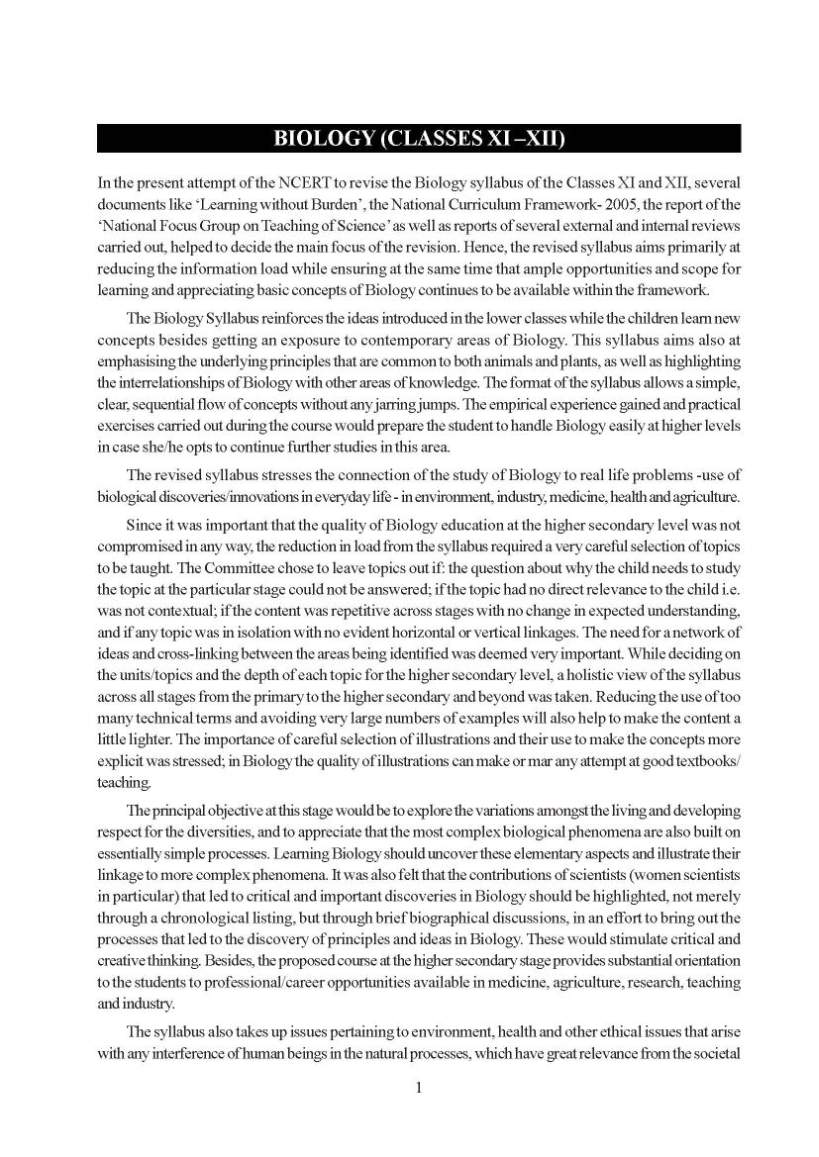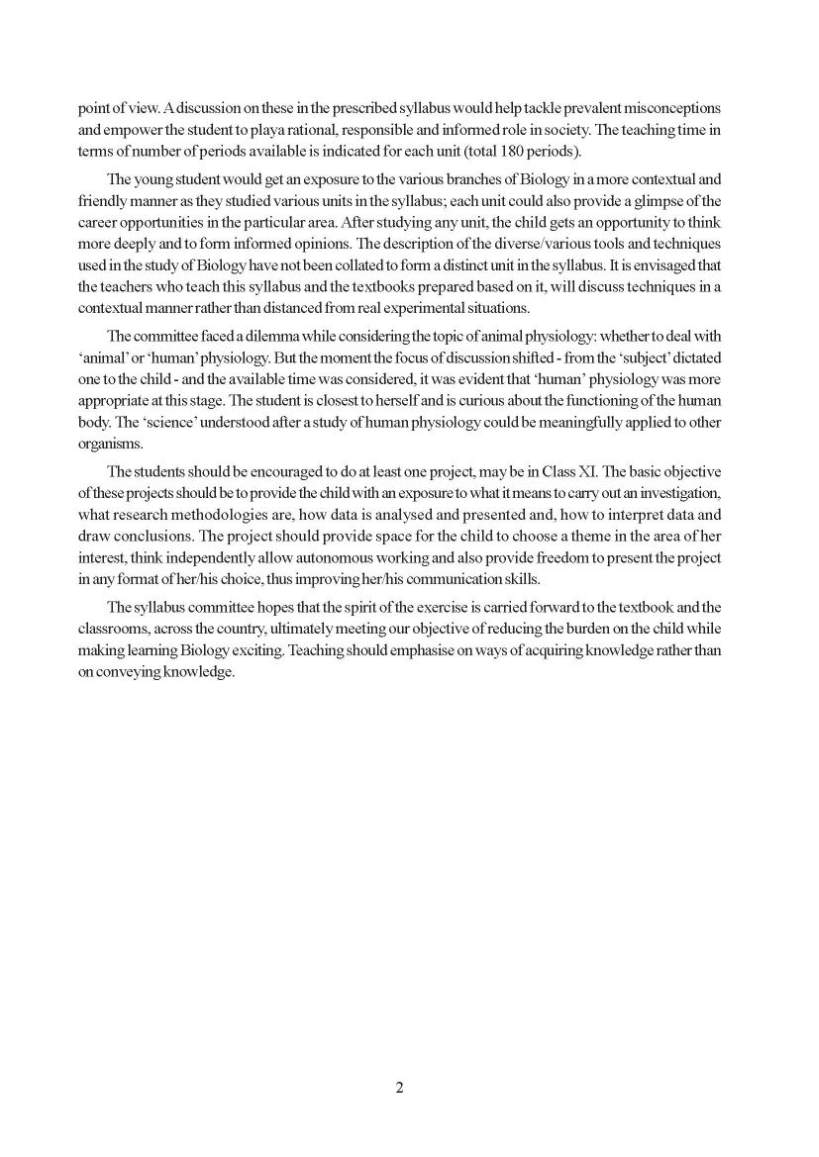|
#4
28th February 2015, 11:34 AM
| |||
| |||
| Re: Changes In NCERT Syllabus
As you want I am here providing you syllabus of Biology for class 11th offered by National Council Of Educational Research And Training. Syllabus : I. Diversity in Living World ( Periods 25 ) What is living?; Biodiversity; Need for classification; Three domain of life; Taxonomy & Systematics; Concept of species and taxonomical hierarchy; Binomial nomenclature; Tools for study of Taxonomy– Museums, Zoos, Herbaria, Botanical gardens. Five kingdom classification; Salient features and classification of Monera; Protista and Fungi into major groups; Lichens; Viruses and Viroids. Salient features and classification of plants into major groups- Algae, Bryophytes, Pteridophytes, Gymnosperm and Angiosperm (three to five salient and distinguishing features and at least two examples of each category); Angiosperms- classification up to class, characteristic features and examples. Salient features and classification of animals- non chordate up to phyla level and chordate up to classes level (three to five salient features and at least two examples). II. Structural Organisation in Animals and Plants ( Periods 25 ) Morphology and modifications; Tissues; Anatomy and functions of different parts of flowering plants: Root, stem, leaf, inflorescence- cymose and racemose, flower, fruit and seed (To be dealt along with the relevant practical of the Practical Syllabus). Animal tissues; Morphology, anatomy and functions of different systems (digestive, circulatory, respiratory, nervous and reproductive) of an insect (cockroach). (Brief account only) III. Cell Structure and Function (Periods 40) Cell theory and cell as the basic unit of life; Structure of prokaryotic and eukaryotic cell; Plant cell and animal cell; Cell envelope, cell membrane, cell wall; Cell organelles– structure and function; Endomembrane system- endoplasmic reticulum, Golgi bodies, lysosomes, vacuoles; mitochondria, ribosomes, plastids, microbodies; Cytoskeleton, cilia, flagella, centrioles (ultra structure and function); Nucleus–nuclear membrane, chromatin, nucleolus. Chemical constituents of living cells: Biomolecules–structure and function of proteins, carbodydrates, lipid, nucleic acids; Enzymes–types, properties, enzyme action. Cell division : Cell cycle, mitosis, meiosis and their significance. IV. Plant Physiology (Periods 45) Transport in plants: Movement of water, gases and nutrients; Cell to cell transport– Diffusion, facilitated diffusion, active transport; Plant – water relations– Imbibition, water potential, osmosis, plasmolysis; Long distance transport of water– Absorption, apoplast, symplast, transpiration pull, root pressure and guttation; Transpiration– Opening and closing of stomata; Uptake and translocation of mineral nutrients– Transport of food, phloem transport, Mass flow hypothesis; Diffusion of gases (brief mention). Mineral nutrition: Essential minerals, macro and micronutrients and their role; Deficiency symptoms; Mineral toxicity; Elementary idea of Hydroponics as a method to study mineral nutrition; Nitrogen metabolism – Nitrogen cycle, biological nitrogen fixation. Here is the attachment. (syllabus of Biology for class 11th offered by NCERT)   Last edited by Arun Vats; 28th February 2015 at 11:37 AM. |
